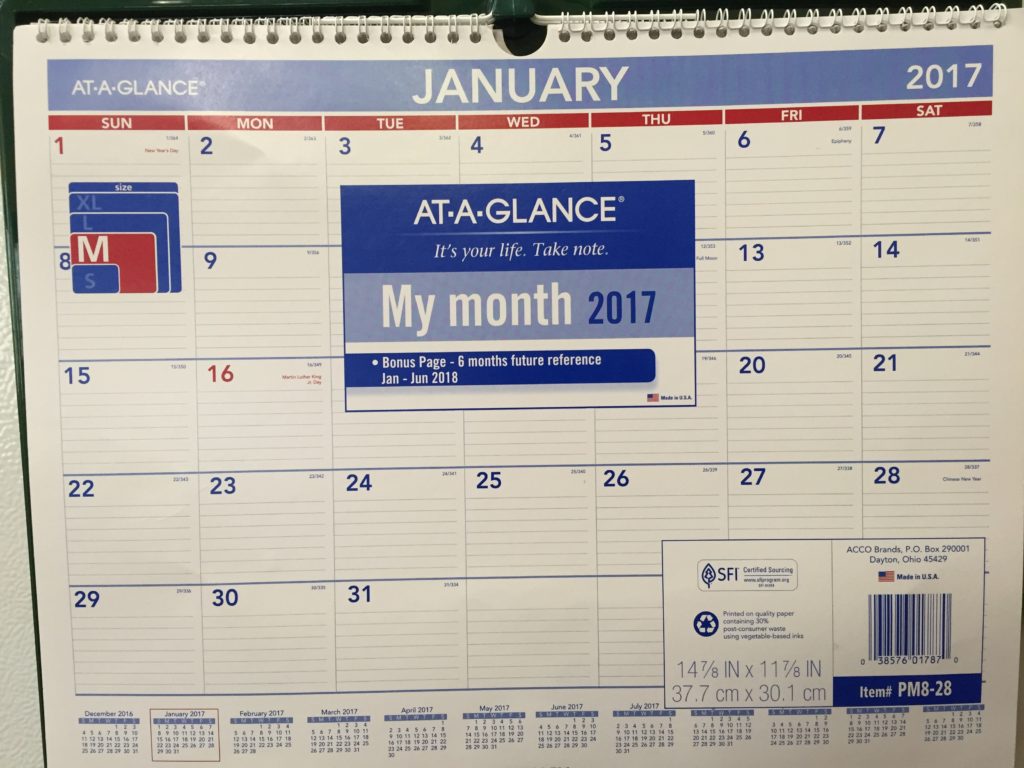
Do you know who won the football game last Sunday? Did you see it? Though the Dallas Cowboys are not “my” team, no one can dispute the successes and quality of the Dallas Cowboy team play since Dak Prescott, Ezekiel Elliott and others banded their team together to complete one of the best Cowboys football seasons in recent history. Since Dak Prescott is from my hometown, I have enjoyed seeing his success. Watching a great athlete compete with skill and perseverance while calling his mind and body to perform at an elite level is a beautiful thing – no matter what team a player is on. I saw only the last seconds of the game Sunday night, but it was in those final moments that it became clear that Green Bay’s kicker, by the narrowest of margins, kicked the football between the uprights to give the Green Bay Packers a winning score of 34 to 31 over Dallas. The scoreboard numbers and the celebrations by the Packers team and fans showed the television audience that Green Bay would move on to the final playoff game before the Superbowl. Dallas Cowboy fans were stunned, shaken, and sad. What happened?
What happened was that the Packers won and the Cowboys lost. But wait just a minute. On Monday I heard a story that said Green Bay won the scoring vote but that the Cowboys won the popular vote. The Cowboys had been ahead during the game and let’s face it — the Cowboys are America’s team. According to the story, the Cowboys deserved to win. The final score just couldn’t be the “be all and end all” outcome of the competition. Could it? Should someone send a note to the Green Bay Packers and fans to tell them that the final scoreboard score just didn’t count? Would someone actually say that a popular vote of public sentiment and rankings trumped the actual game played and score?
Of course not! Green Bay just like Clemson in the College Championship game beat Alabama in the final seconds because they scored more points than the other team. Yes, Alabama like Dallas, was favored to win, but they didn’t. They didn’t win because they didn’t score more points than the other team. That’s the way the game is played. Yes, some will be disappointed that their team did not win, but that is what happens in a contest. One wins, and one looses. The contest and the rules are clear to all before the competition begins, and then the game is played. For 60 minutes the football teams competed and each did their best to win.
In the recent presidential election, the candidates entered the contest, knew the rules, and competed fiercely for victory. One won, and one lost. Since the infancy of our nation and for over 240 years, we have held the same system of electing a president. On several occasions the presidential candidate that won the popular vote did not win the majority vote in the electoral college. The first incident of this kind was in 1824 with Andrew Jackson winning the popular vote by over 10% but losing to John Quincy Adams in the electoral college. Yet in the 193 years since that first contentious election where John Quincy Adams became our sixth President, our citizens, and as a result our elected officials, have not voted to change the electoral college system or rules by which U S Presidents are elected each and every 4 years. I’m not giving an opinion on the electoral college system, but simply stating that it is the current system and provides the rules for the election of all of our presidents.
Our government is not a true democracy, but a representative republic by which each citizen (unless they are a felon or live in a U S territory) has the right to vote to elect representatives to vote their will. Unlike most governments in our world, the United States of America has a system of government that is of, by and for the people. Too often I think our citizens have abdicated their rights to control the government by being inattentive, ignorant and apathetic. In most elections only a small percentage of citizens even show up to the polls to cast their votes. As a result, the small majority that do vote or do push their agenda in the halls of our state legislatures and in Congress often get their way in a manner that is many times not “fair” or good for the citizenry as a whole.
Like the Clemson/Alabama game the week before and the Cowboys/Packers game this past Sunday, the presidential team with the popular vote, poles and rankings did not win. The final score was Hillary Clinton 232 and Donald Trump 306. Mr. Trump seemed to trail most of the game, and the popular opinion and poles were not favorable for him. But, in the end and at the end of the election, Donald Trump had the winning score.
In less than 24 hours, our nation is set to inaugurate the 45th President of the United States. This man was elected by the rules of candidacy and competition set forth in our laws to serve our nation and its people. Like the 44 Presidents before him and as required by the U S Constitution in Article II, Section One, Clause 8, Donald J. Trump is scheduled to take the same oath his 44 predecessors did. The oath says “I do solemnly swear (or affirm) that I will faithfully execute the Office of President of the United States, and will to the best of my Ability, preserve, protect and defend the Constitution of the United States.” George Washington, our first President, was recorded to have concluded his oath of office with the statement, “So help me God.” requesting the help of the Almighty as he served. Washington set a precedent that has continued for over 200 years, including both swearing in ceremonies for Barak Obama.
Our national motto says “In God we trust.” But do we? Our Pledge of Allegiance says “… One nation, under God, indivisible, with liberty and justice for all.” But is it? I see a great rift in our nation today. What once was clearly an indivisible citizenry is divisive. Those promoting freedom and tolerance are often the most restrictive and intolerant. Justice seems to apply to some more equally than others. Have you read Animal Farm? Any look at our history, its monuments and the words engraved on many of our government buildings clearly shows that our nation was based and built on Christian values and freedoms. Alexis de Tocqueville, the French political thinker and historian who came to America in 1831 and wrote Democracy in America, said, “Liberty cannot be established without morality, nor morality without faith.” Revisionist historians and teachers are working diligently to rewrite, revise and remove all semblance of this truth from our documents, monuments, buildings and culture. As a result, many today have no knowledge or appreciation for the work done and the price paid by our founding fathers for the freedoms we enjoy. In no other country in the world are people dying to “break in” to join our society. In no other country in the world do its citizens hold as many rights and freedoms. No other country has the opportunity and the great responsibility to self-govern as we, the citizens of the United States, do.
In watching the recent events and outbursts designed to disrupt, dismantle, and delegitimize our society and government, I am sad to see the disunity in these United States. This is not good for our nation. The spirit of anarchy should not be allowed to fester and grow. I hope that you will join me to pray and to work for our nation’s best interests and unity. I believe the answer to what ails us lies in developing a more godly, patriotic, informed, critical thinking and intentional voting citizenry that seeks not their own good, but the good of the nation as a whole. A citizenry that loves their neighbor as their self. Towards that end, here are some lessons that I learned as a child from my parents, teachers, and mentors about sportsmanship and life. Some in the younger generations may not have seen these teachings before, so I hope you will enjoy them, take note and let them guide and enrich your life.
LESSONS OF SPORTSMANSHIP AND LIFE FROM A LOUISIANA LADY
1. Life isn’t always fair. I just hated hearing my mom tell me that over and over, but it’s true.
2. You have to play the game to have a chance to win. Get in the game.
3. In almost every case, the more skilled or competitive player or team will win.
4. You won’t always win, even if you work and try hard.
5. There are no awards for just showing up and participating.
6. Opponents will often work and fight just as hard, or harder, to win as you did. Life’s tough.
7. When you give your best efforts and still lose, there’s no shame in that.
8. Competing by the rules with integrity and fairness is expected.
9. Cheating is wrong.
10. It is important to be a “good sport.” Otherwise, you are a bad loser.
11. You don’t argue about the rules of the game after the game is over.
12. You may not have a hissy fit if you lose. You’ll be disciplined if you do.
13. Be gracious in loss and victory. Learn to sincerely show respect and congratulate an opponent.
14. Learn to “follow the leader” elected or selected even when he/she wasn’t your preference.
15. Know that there might be a next time, or there might not be a next time for a rematch. Sometimes you just get one chance at something.
16. Remember that President Abraham Lincoln quoted Jesus when he said, “A house divided against itself cannot stand.” from Matthew 12:25 (NIV)
17. It is often beneficial if you can get along with those with which you disagree. We know that Galatians 5:15 (ESV) says, “But if you bite and devour one another, watch out that you are not consumed by one another.” So, don’t burn your bridges and boats.
18. “Whoever claims to love God yet hates a brother or sister is a liar. For whoever does not love their brother and sister, whom they have seen, cannot love God, whom they have not seen. And he has given us this command: Anyone who loves God must also love their brother and sister.” I John 4:20-21 (NIV) Love is the greatest commandment.
19. About authority, remember Romans 13:1-7 (NIV) which says “Let every person be subject to the governing authorities. For there is no authority except from God, and those that exist have been instituted by God. Therefore whoever resists the authorities resists what God has appointed, and those who resist will incur judgement. For rulers are not a terror to good conduct, but to bad. Would you have no fear of the one who is in authority? Then do what is good, and you will receive his approval, for he is God’s servant for your good. But if you do wrong, be afraid, for he does not bear the sword in vain. For he is the servant of God, an avenger who carries out God’s wrath on the wrongdoer. Therefore one must be in subjection, not only to avoid God’s wrath but also for the sake of conscience…” Respect those in authority, whether you like them or not because they are under authority too.
20. Don’t forget that “The Lord has made everything for its purpose, even the wicked for the day of trouble.” Proverbs 16:4 (ESV)
21. Winning doesn’t make us better than others.
22. Losing is not the end of the world, and God is in charge of the end of the world too. (See Matthew 24:36 and Mark 13:32)
Thanks for reading. I appreciate you. May God bless you and yours.
Robin House



